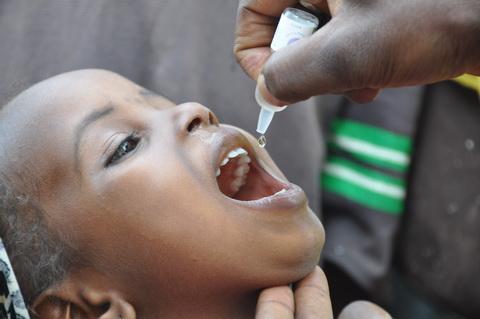As the country repeatedly faces the challenge of having to grapple with one infectious disease or the other, the Nigeria Centre for Disease Control and Prevention (NCDC) recently disclosed an outbreak of diphtheria across the country, with a reported death toll of 34 and another 100 registered cases in Kano State. The NCDC had on Sunday, January 22, 2023, affirmed via its official website that the deaths were between December, 2022, and early January, 2023, in Lagos, Kano, Yobe and Osun states, with Kano alone registering 25 deaths. The agency blamed the increase in the bacterial infection and resurgence on the low vaccination coverage across the country. DPT is one of the vaccines administered on children at six weeks after birth.
Diphtheria is a vaccine-preventable disease that was common decades ago. Due probably to the successes achieved in the Expanded Programme on Immunisation (EPI) against deadly childhood diseases, many people in this part of the world appear to have forgotten about diphtheria or what diphtheria looks like. Its recent resurgence plausibly suggests critical reductions in vaccination coverage in pockets of communities among the country’s population.
According to the NCDC, “Any state where you find diphtheria now, it is likely to be associated with suboptimal vaccination coverage, either in general or in pockets of the population,” adding that, “It is not a matter of diphtheria spreading from state to state, the bacteria that causes the disease is present everywhere in our environment.”
Official statistics indicate that the rise of identified cases of diphtheria in Kano from 25 to 100 occurred in less than two weeks. Three lives have been lost to the disease in 13 Local Government Areas (LGAs) of the state. The LGAs where the disease is ravaging are Ungogo, Nassarawa, Bichi, Dala, Dawakin Kudu, Fagge, Gwale, Kano Municipal, Kumbotso, Rano, Dawakin Tofa and Gwarzo. While some of the infected persons are reportedly on admission receiving treatment, dozens have been managed and discharged.
Diphtheria is an infection caused by a bacterium called Corynebacterium Diphtheriae, which affects the throat, nose and sometimes skin of unvaccinated children. The symptoms of the disease include fever, runny nose, sore throat, cough, red eyes, neck swelling and difficulty in breathing. Diphtheria spreads easily among people through direct contact with infected people or through the air via droplets from coughing or sneezing and contact with contaminated clothing and objects.
In severe cases, grey or white patches develop in the throat, blocking the airway to create a barking cough. Unvaccinated children and those who live in crowded areas and/or where there is poor sanitation are at a higher risk of contracting the disease. Meanwhile, some people carry the bacterium without having symptoms, but can still spread the disease. There is clinical evidence that in some outbreaks, more than 10 per cent of those diagnosed with the disease die.
While the disease was first described in the 5th Century BC by Hippocrates, the bacterium was identified in 1882 by Edwin Klebs. In Europe, Spain experienced an epidemic of diphtheria in 1613, which later came to be known as El Año de los Garrotillos; meaning, “The Year of Strangulations”, in the history of Spain. Diphtheria currently occurs most often in sub-Saharan Africa, India and Indonesia. In 2015, it resulted in 2,100 deaths, down from 8,000 deaths in 1990. In areas where it is still common, children are most affected. It is rare in the developed world due to widespread vaccination, but can re-emerge if vaccination rates decrease
In the wake of the current outbreak, the FCT Administration (FCTA) at a meeting held in Gwarinpa District directed all health agencies in the territory to take necessary pre-emptive measures against the outbreak of the disease. The Director, Information and Communication in the FCTA, Muhammad Sule, said this became necessary as cases had been reported in some states around the FCT.
To tame the spread of the disease, it is important for community health workers to increase surveillance, create awareness through intensive sensitisation programmes, especially in rural areas. Parents must ensure that their children are fully vaccinated without, of course, missing any of the jabs on the EPI vaccination schedule, including the three doses of the pentavalent vaccine as recommended in the National Childhood Immunisation Schedule.
Yet, no matter how a state in any part of the country effectively responds to the outbreak of the disease, its population could still be vulnerable if other states remain unresponsive.
Daily Trust, therefore, calls on the NCDC to quickly design and coordinate a strategic national response programme in a way it did with COVID-19; another infectious disease. The outbreak and spread of diphtheria must be nipped in the bud now before it develops into something bigger.

 Join Daily Trust WhatsApp Community For Quick Access To News and Happenings Around You.
Join Daily Trust WhatsApp Community For Quick Access To News and Happenings Around You.


